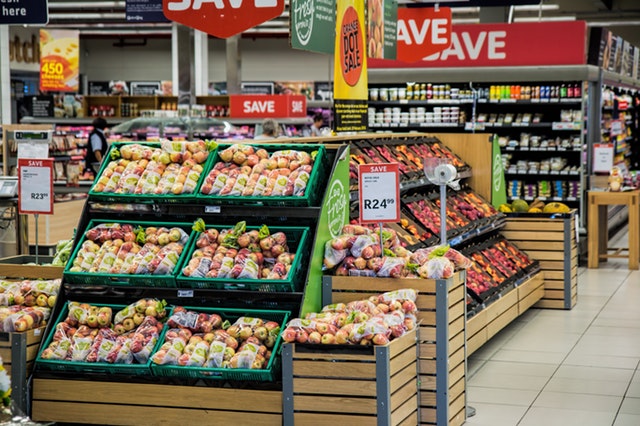I love supermarkets. It’s for a simple reason is that you get everything you need under one roof. When you have nothing much to do you can just loiter around for you groceries which can be a very boring ‘to do’ part of you weekend.
And if you have Dmart in you vicinity, which is probably the cheapest place to buy groceries you are in luck right?
Wrong!
I count myself as a frugal person who thinks twice before I get let go my loved hard earned part of my salary I call savings. But I meet with frugal accidents when I went to buy milk or curd and end up putting my pin on a bill which is upwards of 1000 rupees , baffled on how did I end up buying things I didn’t plan to!
I see at my shopping cart and say – ahhh – not again!
And I am pretty sure this ‘Supermarket Hypnosis’ would have claimed many victims.
And it is not entirely your fault. You have great minds at work that have only one job to do. Make you spend more the moment you set your foot in a supermarket. Some are simple trick like give you offers or discounts that create impulse buying. Others ticks are difficult to pick up like designing the floor layout such that you have to go deep inside to find the basic groceries items.
Yes! That’s how I got tricked in buying things even before I got to the Dairy section. Now recall, where you find the dairy section in your favorite supermarket. Is it in towards the other end of the store?
So is there any way of snap out of this Hypnosis. Well, don’t worry your friendly frugal Finzaadi to the rescue!
Here are the top ways to save money while groceries shopping in India
- Go grocery shopping with a partner
We have already established that there are larger forces at work that are trying with all their might to force you to part with your money. So if you are one with a weak mind try not to go shopping alone. Take your partner along. Be it you spouse, parents, and room partner. Anyone who you know can stop you from over spending. Most will recommend having a ‘Shopping list’ is the number one way to avoid over spending however I find it to be quite useless if one cannot resist the temptation of impulse buying. Even if you have to go alone call you partner for any unplanned buying of more than 100 Rupees. If you get an approval then go ahead. And if not respect their opinion and don’t buy!
2. Limit your groceries carrying capacity
Please don’t carry 2 big carrying bags when you know you only came to buy a dozen bananas for your post workout banana shake. Carry a small bag for such small ticket items. Don’t use your car unless you are on your monthly groceries shopping. Try to go to the superstore on foot so that you will think twice before putting in your shopping cart. In the end it is you who will struggle to carry all those unnecessary stuff home. And it will save on fuel too.
Don’t cheat out of this by paying for an extra bag. I know you won’t! That will cost you extra money which will come out of you savings.
3. Don’t get you credit or debit card. Get only cash
I would always advise you to buy using the credit card. There are multiple reasons for this. You get points for every rupee that you spend. You also get free credit which can last as long as 45 days. If you are making all you expense payments using credit cart you will get all you will get a ‘Free’ expense tracking report.
Having said that, to control impulse buying a sure shot way is to carry cash when you go to supermarkets. It is especially useful when you only have a thing or two to buy. You possibly cannot outspend when you don’t have money for it right. Unless you are very good at charming the cashier on the counter which I think most of us are not!
4. Use mental math or use your calculator in your phones.
Those discounts can be confusing. As a kid I was not a big fan of mathematics but the moment I enter in a supermarket I transform into a math genius.
I start to calculate how much Pampers diaper cost vs. Mamy Poko pants! To make it more challenging, all packs have different MRP, discounts and number of diapers in them. I feel buying stocks based on fundamental analysis is easier then figuring out the lowest costing diaper pack!
Spend some time calculating the real cost of offers. Use your calculator on your phone to figure cost per unit. If you still think it’s a good deal then go ahead and put it in your shopping cart.
5. Setup a timer to get out of supermarket.
I remember how my parents did their groceries shopping. There were no super markets during the time. You have your good old wholesalers where you would find the best deals in the town. You would go their usually once salary is credited with half of the town in queue (everyone got salary at the same time). There was no place to hangout. You had to be efficient else the shopkeeper will start frowning.
Times are different now; you are encouraged to spend as much time groceries shopping. Don’t wander around. Get your list, go to the relevant sections, pick things up and get going. Mixing the groceries shopping with leisure brings the cost up. You see things you don’t need and can’t fight the impulse of buying it.
You see a fancy cups or a beautiful Night lamp which you absolutely don’t need. No one uses night lamp in India. The amount of plastic containers I have in my kitchen is thing of wonder.
Setup a timer of when to leave a supermarket and shop accordingly. When you are at the end of it then leave. Have a discipline that will make you better next time.
6. Don’t Buy 1 and get 1 Free – try buying ‘Zero’
It is scientifically proven that you stop thinking logically the moment you see anything available for free. So when you see buy 1 get one 1 free you automatically thing it is a good deal. Similarly, things available at a steep discount like 80% or 90% off make it irresistible.
Think if you require that Bikaji Bhujia, if you have a home party next week for which you need it. Stock it. Buy as much as you need. Else don’t!
Not only you will pay thing which you don’t require, you also end up consuming extra processed food which is not necessarily health for your body.
7. Don’t be brand Loyal
Colgate or Pepsodent – do you know which one is good for your teeth. I mean not what the ads are telling you. But for sure which one is good. My opinion is most of the product are similar and in lot of cases procured from the same vendors. So why do you pay extra for any one of them.
Market strategies for FMCG’s keep shifting from advertising, discounts, buy 1 get 1 offers or offers like 30% extra. Take advantage of such offers if a competitor is giving one. Most of the products from renowned companies are of same quality.
Take benefit of in-house brand of supermarkets like big bazaar, reliance smart or Dmart. Usually they offer more value. But loose product like sugar, grains instead of package one also will always turn out to be cheaper without compromising quality.
8. Buy products close to their natural state
Buy fruits instead of fruit juices. The lesser processed the product is the cheaper and healthier it would be. Also doing some bit to manual labour is good for your physical or mental health.
9. Search for alternatives
Benefit of super market is you find everything under one roof. However not everything that you see in a low cost super store is actually low cost. Dmart has the most discounts on products however I have seen in my area milk is cheaper in Reliance Smart. Vegetables are fresher and cheaper in local vegetable marker then Reliance Smart.
Don’t be lazy and try to find cheaper alternatives. Check out online groceries like Grofers if they have a better deal. It is mostly a one time activities which will benefit you for a lifetime. You cannot underestimate the saving if you find the seller and the best value for money product that they sell.
10. Buy the biggest pack possible
Always buy the biggest package possible if the product is non perishable and can be stored for long. Things like soap, detergent, hair oil are something which will not go bad for long. But you will see supermarkets will not prominently display them and usually I have see lot of people don’t prefer bigger packs. Due to economies of scale you will more often than not find the bigger packs are more value for money.
Groceries are one of the biggest expenses of the month in any house hold. It not only impacts your financial aspects but also your health aspects.
Buying right will not only bring you closer to financial Independence pumping up your savings but also could lead to a healthier independent life.
The positive environmental benefits of reducing impulse buying is just cherry one the top!












